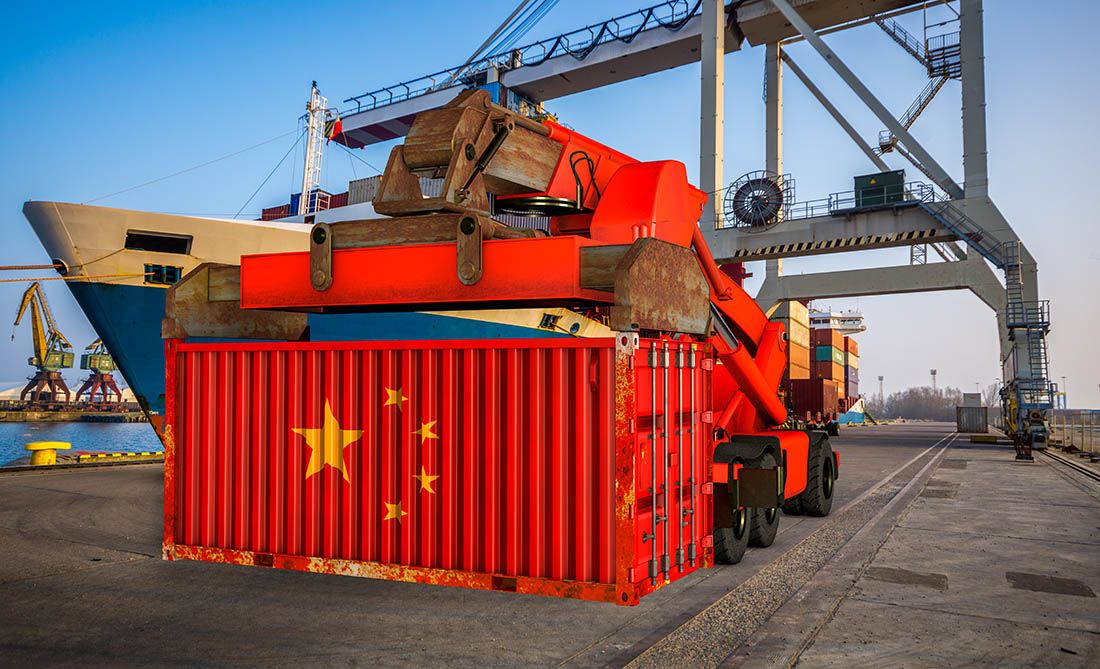
Australian Dollar Hit by News China will Now Target Aussie Coal Exports
by Gary Howes- China looks to limit imports of Aussie coal
- Move follows moves to frustrate iron imports
- Anti-trade stance clouds AUD outlook
- GBP/AUD spot rate at time of writing: 1.8589
- Bank transfer rates (indicative guide): 1.7938-1.8070
- FX specialist provider rates (indicative guide): 1.8140-1.8422
- More information on specialist rates can be found here
The Australian Dollar turned sharply lower against the Pound, Euro and U.S. Dollar as well as the majority of its G10 peers amidst signs China was looking to ramp up economic pressure on Australia.
The Australian Dollar fell by 0.80% against the Dollar and turned lower against a struggling Pound after media reports emerged that China was looking to tighten import rules on foreign coal, starting with shipments from Australia.
"Australian coal is definitely the initial target,” Colin Hamilton, analyst at BMO Capital Markets told the FT.
As a result of the loses in the Aussie currency, the Pound-to-Australian Dollar overturned earlier losses - which is notable considering the newfound pressure Sterling is currently under - to trade higher at 1.8585. The Australian-U.S. Dollar exchange rate slumped 0.80% to hit 0.6594, while the Euro-Australian Dollar exchange rate rallied to 1.6693.
Following a strong multi-week run of appreciation the Australian Dollar's outlook now looks to be increasingly clouded by an apparent push by China to target Australia's economy in retaliation for demands of an investigation into the origin of the covid-19 outbreak.
The potential restrictions on coal imports from Australia - which is Australia's second largest export and earner of foreign exchange - follows similar moves on restraining imports of Australia's number one export: iron ore.
On May 21 it was reported Chinese custom officials are set to impose new inspection procedures and rules on iron ore imports from next month.
Iron ore is Australia's main export and key foreign exchange earner, and it appears Chinese authorities are looking to add fresh lines of red tape around iron ore imports, which could be used to block or hold up Australian shipments.
"If coal or iron ore, Australia’s biggest export goods, were considered to be the subjects of Chinese retaliation, the risk to the country’s economy and to the AUD would be accentuated," says Jane Foley, Senior FX Strategist at Rabobank.

The move on coal and iron ore in turn follows the imposition of an anti-dumping duty of 73.6% and an anti-subsidy duty of 6.9% on Australian barley by China, effective from May 19.
China had meanwhile banned beef imports from three Australian abattoirs earlier in May, citing hygiene concerns.
China is therefore not looking to use trade as a stick with which to bat away Australia's political offensive over covid-19, instead it is sending a subtle, yet clear, message that it holds significant sway over Australia's economy.
Given the deterioration in the relationship between the two countries means the outlook for Australia's exports to China - a powerhouse of the country's economy - has soured, and with it the outlook for the Aussie Dollar.

Time to move your money? The Global Reach Best Exchange Rate Guarantee maximises your currency purchasing power. Find out more.

Brexit will impact your UK pension if you are living in the EU. Capital Rock Wealth have developed a comprehensive guide to help you navigate the uncertainty ahead.
Find out more

Invest in Spanish Property. A selection of discounted properties due to the covid-19 crisis, online viewings and transactions possible. Download the guide. Download the Guide